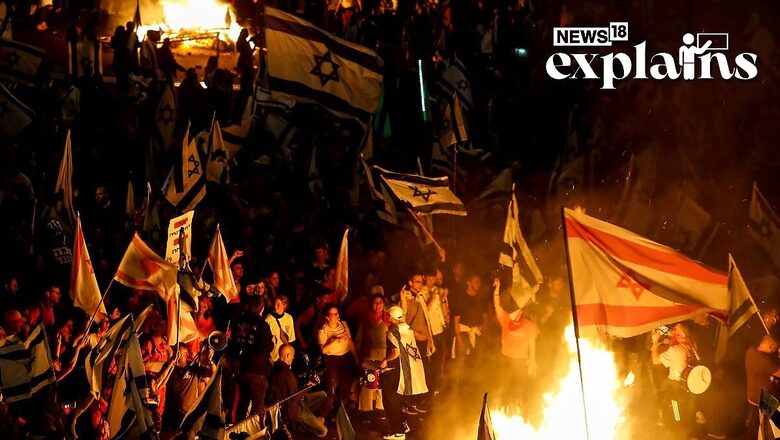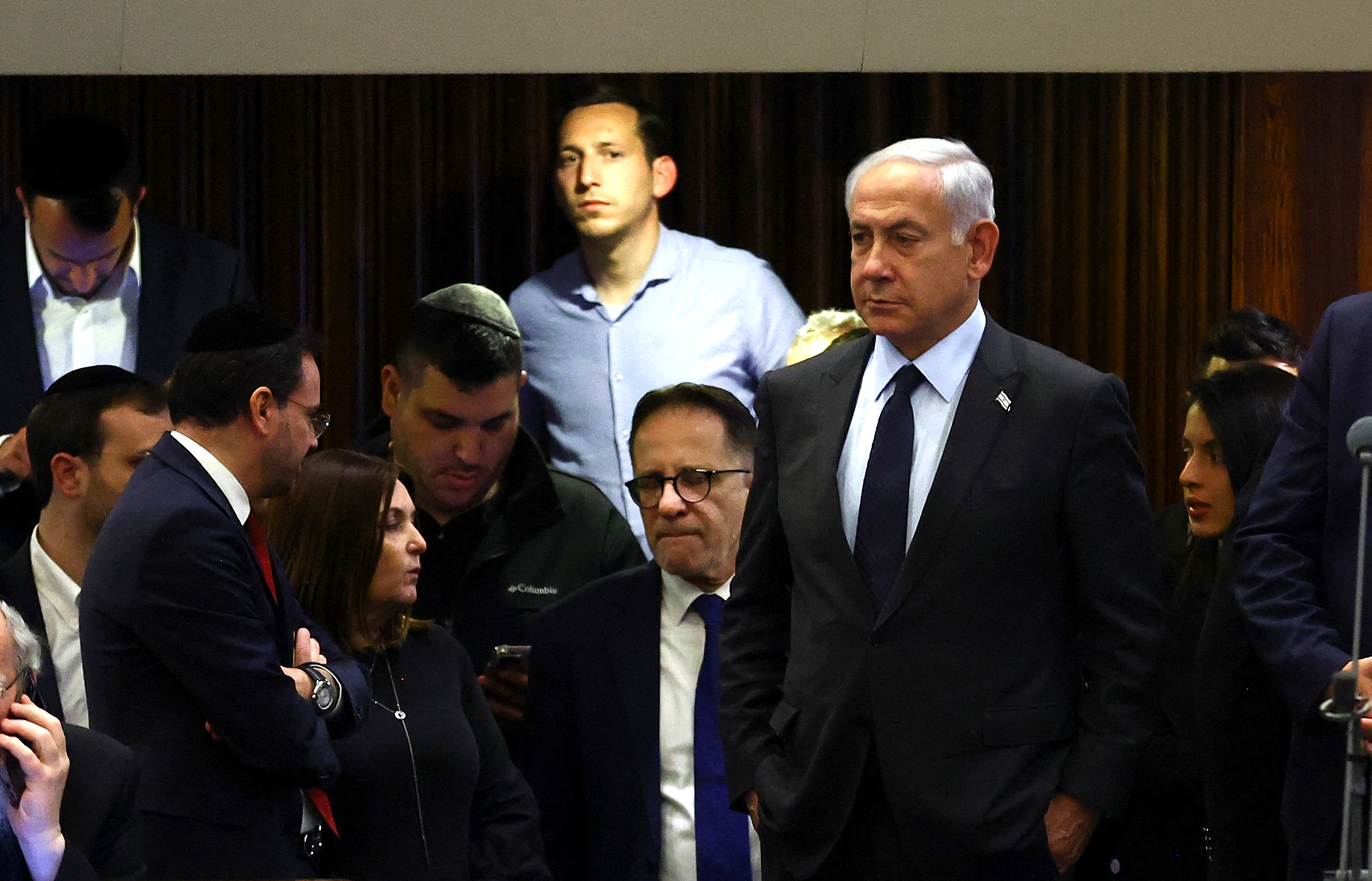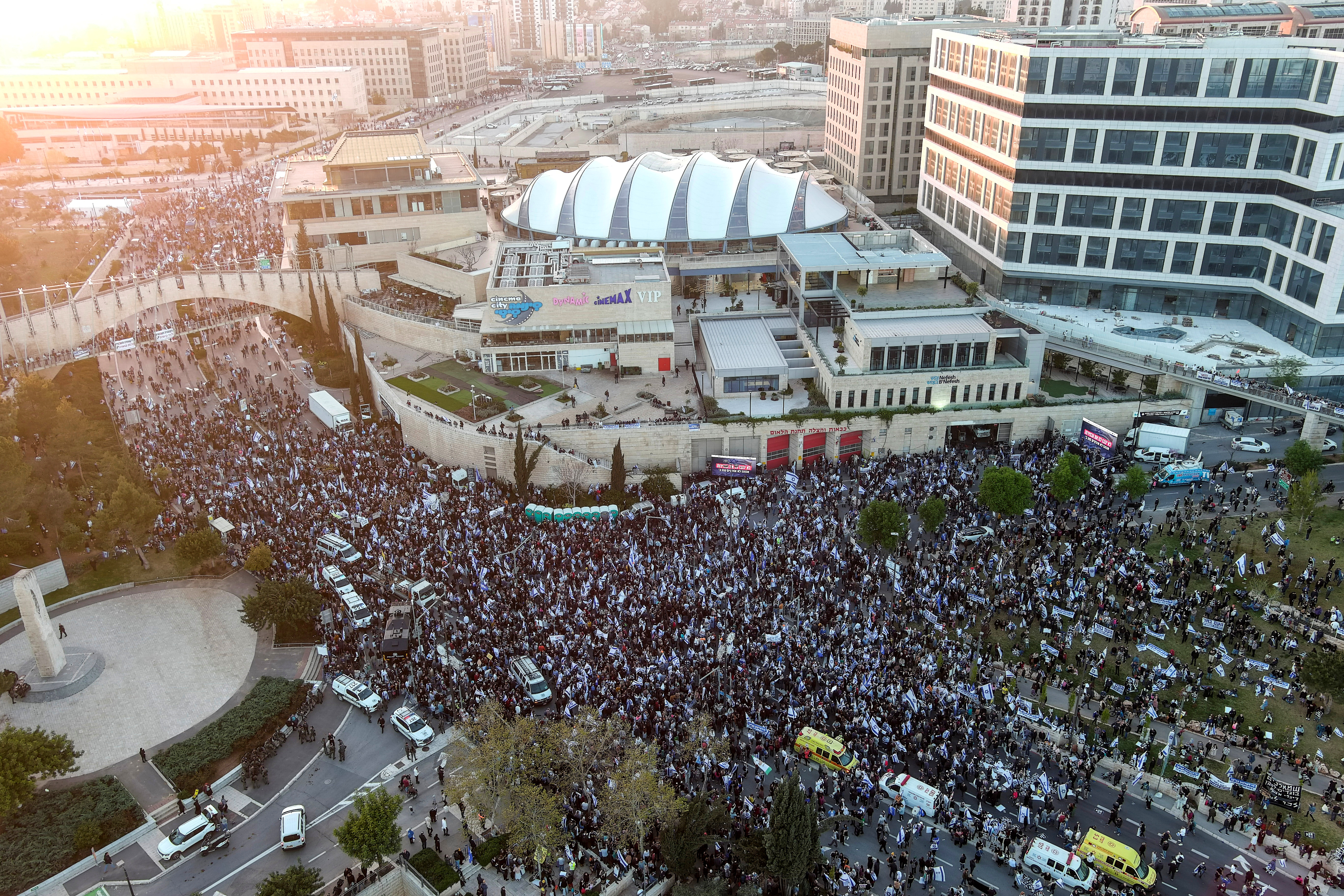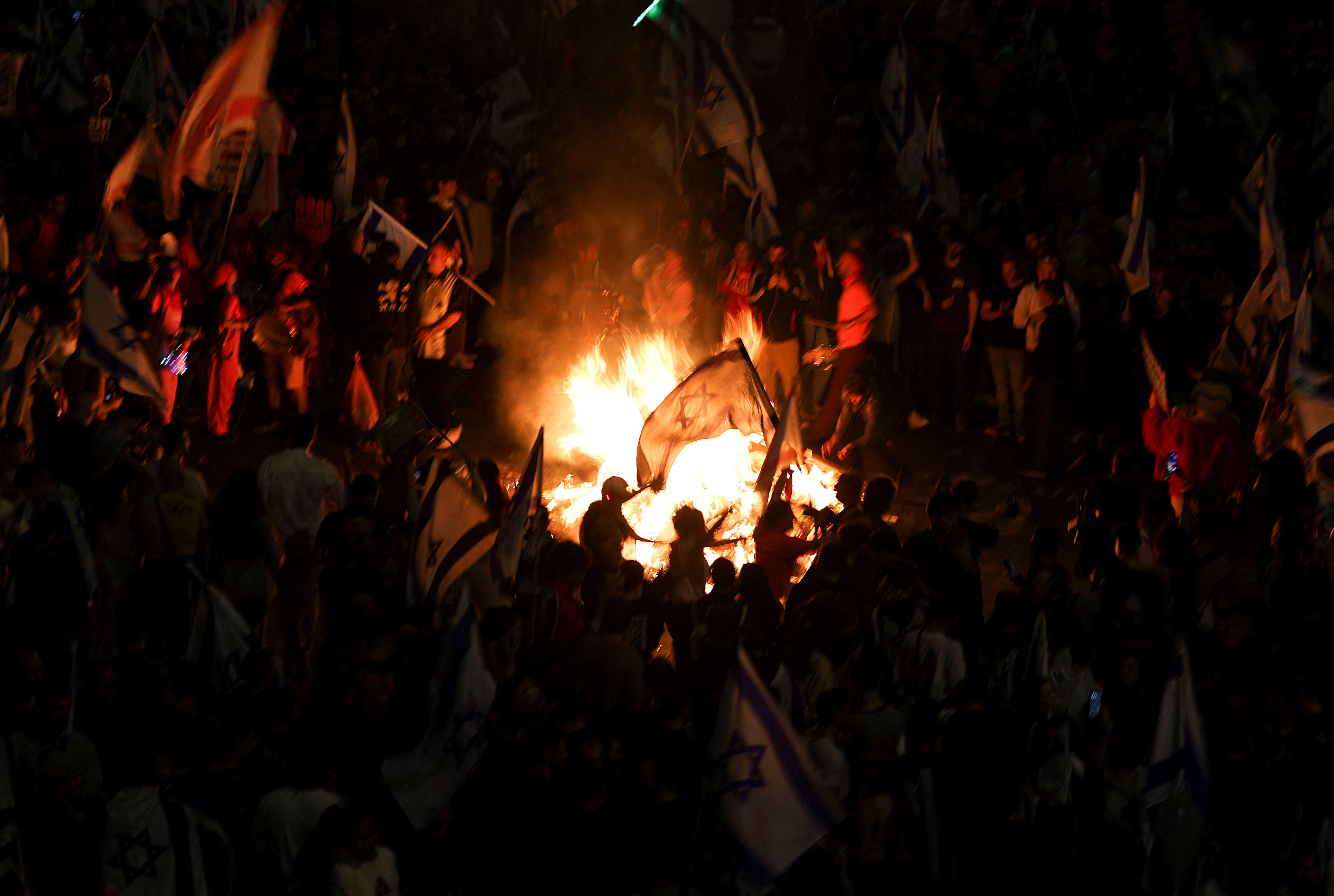
views
Bending to a wave of mass protests, Israeli Prime Minister Benjamin Netanyahu delayed his contentious judicial overhaul plan Monday and said he wanted “to avoid civil war” by making time to seek a compromise with political opponents. Read the latest updates on this
The announcement appeared to calm some of the tensions that have fueled three tumultuous months of unrest. But it failed to address the underlying issues that have polarized the nation, and the anti-government protest movement vowed to intensify its efforts.
In his prime-time address, Netanyahu, who had previously rejected calls to delay the legislation, took a more conciliatory tone than in recent speeches. He acknowledged the deep divisions in the country and said he was hitting the pause button “to prevent a rift in the nation.”

Amid the developments, let’s take a look at why the judicial reforms are contentious and what might happen next:
The Contentious Judicial Reforms that Lit ‘the Country on Fire’
- Netanyahu and his religious and ultranationalist allies presented the overhaul in January just days after forming their government, the most right-wing in Israel’s history. The proposal has plunged Israel into its worst domestic crisis in decades. Business leaders, top economists and former security chiefs have all come out against the plan, saying it is pushing the country toward an autocracy. Fighter pilots and military reservists have threatened not to report for duty, and the country’s currency, the shekel, has tumbled in value.
- The plan would give Netanyahu, who is on trial on corruption charges, and his allies the final say in appointing the nation’s judges.
- It would also give parliament, which is controlled by his allies, authority to overturn Supreme Court decisions and limit the court’s ability to review laws.
- According to a CNN report, the revisions would be the most substantial in Israel’s judiciary since its establishment in 1948. However, the reforms proposed did not appear out of nowhere, as many political figures have previously urged for changes to Israel’s courts. Because Israel lacks a formal constitution and instead relies on a system of quasi-constitutional basic laws, the Supreme Court is significantly more powerful. But, aside from the Supreme Court, Israel has no other check on the Knesset’s power, the report explains.
- The judicial makeover is a collection of bills that must all be approved by three votes in the Knesset before becoming law. The measure that modifies the makeup of the nine-member committee that selects judges, giving the government a majority of the seats on the committee, is one of the most significant parts for the Netanyahu government. According to Netanyahu and his allies, the Supreme Court has become an insular, elite body that no longer represents the Israeli people. They contend that the Supreme Court has overstepped its bounds by ruling on subjects that it should not have. In defending his proposals, the prime minister cited countries such as the United States, where politics determine who is appointed and approved as federal judges, the CNN report states.
What is the Case Against Netanyahu?
Although various measures could have an impact on Netanyahu, the one regarding designating a prime minister “unfit for office” has the most implications for the Israeli prime minister, says the report.
According to critics, Netanyahu is rushing the reform because of his own ongoing corruption prosecution, in which he faces charges of fraud, bribery, and breach of trust. He claims he has done nothing wrong.
The investigations into Netanyahu’s conduct began in 2016, when authorities explored charges that the leader had a habit of performing official favours for affluent businesses in exchange for presents both material and intangible, as per a New York Times report.
Netanyahu, Israel’s longest-serving prime minister, was accused of grabbing up cigars and Champagne, and bracelets, bags and luxury clothes for his wife; disrupting investigative and judicial proceedings; and even demanding fawning coverage by two leading Israeli news outlets.
In February 2018, police formally recommended that he be prosecuted. In November 2019, he was indicted, and the trial began in May 2020. The Jerusalem District Court made its way through a list of more than 300 witnesses. But the trial, originally expected to last a year or more, has been delayed several times for various reasons, including once when a central witness cited “personal reasons” in 2021, another time because of coronavirus restrictions, and again in February 2022, when the judge in the case tested positive for Covid-19.
Who all are Protesting?
Tens of thousands of people, largely secular, middle-class Israelis, have regularly joined mass protests against the plan. Those demonstrations ramped up Sunday night after Netanyahu abruptly fired Defense Minister Yoav Gallant, who had urged the prime minister to put his plan on hold, citing concerns about damage to the Israeli military.
The firing sparked a spontaneous outburst of anger, with tens of thousands of people taking to the streets in just one hour.

Chanting “the country is on fire,” they lit bonfires on Tel Aviv’s main highway, closing the thoroughfare and many others throughout the country for hours.
Demonstrators continued Monday outside the Knesset, or parliament, turning the streets surrounding the building and the Supreme Court into a roiling sea of blue-and-white Israeli flags dotted with rainbow Pride banners.

“This is the last chance to stop this move into a dictatorship,” said Matityahu Sperber, 68, who joined a stream of people headed to the protest outside the Knesset. “I’m here for the fight to the end.”
Israel’s main trade union, the histadrut, declared a general strike in what it said was the first time it has carried out such an action over a political issue.
The chaos shut down much of the country and threatened to paralyze the economy. Departing flights from the main international airport were grounded, stranding tens of thousands of travelers.
Large mall chains and universities closed their doors, and the union called for its 800,000 members to stop work in health care, transit, banking and other fields.
Diplomats walked off the job at foreign missions, and local governments were expected to close preschools and cut other services. The main doctors union announced that its members would also strike.
In a sign of easing tensions, the union said late Monday that it was halting the strike in response to Netanyahu’s delay.
The announcement appeared to buy the embattled Netanyahu several weeks of quiet. But it was far from clear whether the disputes could be resolved.
With inputs from the Associated Press
Read all the Latest Explainers here



















Comments
0 comment